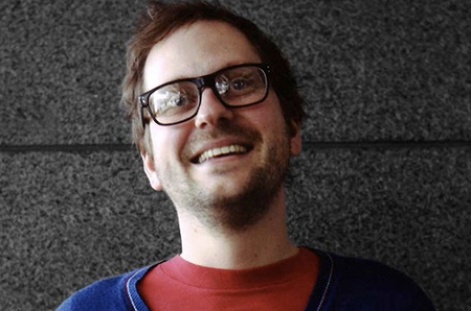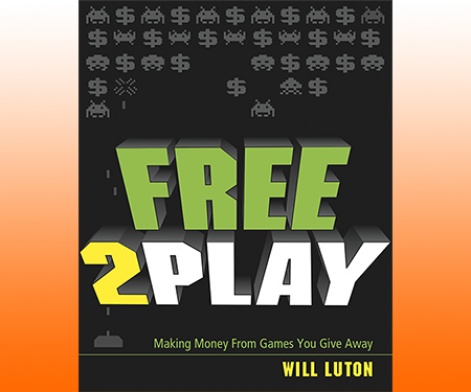Rather than simply talk about the issue on Twitter, he decided to write a book about it.
In Free-to-Play: Making Money From Games You Give Away, Luton who left the Bristol-based studio Mobile Pie back in September 2012 looks to provide what's dubbed as an "accessible and complete guide to the business model".
It launches at a time when thousands of studios across the globe are already deploying the F2P model within their titles, often almost blind. Indeed, it's the fast-paced nature of F2P that makes the task of trying to pin it down in a book as essential as it is ambitious.
So, with the writing now behind him, what has Luton learned from the experience? And what impact does he hope the book will have? We tracked him down to throw some difficult questions in his direction, all without charge.
Pocket Gamer: Writing a book about any subject is a pretty major undertaking. What did you think you could bring to the free-to-play debate through such a medium?
Will Luton: At the moment there's lots written on free-to-play, but it's all very disparate and disjointed. What I wanted was to give a complete understanding to readers, not just a check-list of conventional wisdoms.
The book goes from the very basics of how F2P works, using economic and pop psychology theories, and uses that basis to justify the more complex topics later.

Will Luton
I went back and forth over a few months with some people I really respect to work out how all the thinking on the model fits together, so I feel like I worked out a jigsaw.
My aim is that people read this and they understand the model completely and fully, so that they can go ahead and be creative, pushing F2P forward. We don't need more "me too" titles and I think the reason we have them is because people don't know what makes a hit a hit.
I want people to read the book, play a F2P game and be able to de-construct them in to individual components, then reassemble them in to something better.
Wasn't there a risk that, such is the pace of the market, whatever conclusions you drew would be out of date within months of it being published?
There is that risk, yes. However, rather than talking about du jour trends I abstract them.
So rather than saying "do a daily lottery", I describe reward schedules and how rewards should vary in a manner that makes your game most compelling to trigger players to return, using a daily lottery as an example.
So, I hope the book will stand as relevant for several year yet as mechanics come and go.
Was there much you discovered while writing the book that surprised you? Has your view on free-to-play and the way it works been altered?
It has. What was most surprising for me is how much F2P relies on a good game at the heart of it. If nobody loves the time they spend with the F2P game you make, you'll be entirely unsuccessful in getting them to spend repeatedly.
FarmVille, Bejewelled Blitz and Dungeons & Dragons Online are used as examples throughout and they each have millions of dedicated fans. Of course, those games also have detractors and "good" is entirely subjective but enough people enjoy them to make them a success.
Paid games, meanwhile, are successful only by promising "good". Paid games, I believe, have a weaker correlation between player enjoyment and revenue.
Free-to-play games dominate the revenue charts on mobile, yet some sections of the industry remain openly hostile towards it as a viable model. Why do you think there is such resistance from some quarters?
People are hostile to change. We've been boxing up games for 16-25 men and putting them on shelves for years, so people were comfortable with that, many liked that way of doing things.
There's a fear that F2P will change their hobby or destroy their business and it's somewhat founded. F2P can no longer be ignored.
More people are playing games than ever because of it.

However, I think that many, including me, have been over zealous with evangelising the business benefits of F2P and ignoring the important fact that they're games that are fundamentally in service to their players. That's the real benefit.
Do you imagine your book will have any impact on those hostile to F2P?
If they read it, yes. So I hope they do. I think the industry's opinion is slowly changing, especially as people find F2P games that they enjoy.
What games do you think serve as prime examples of how to do free-to-play right?
There's lots, but I really love Bejewelled Blitz, so was excited to get Giordano [Contestabile] - formerly of PopCap - involved by adding some quotes for the book.
Bejewelled Blitz is a game that makes spending money in it genuinely fun, but also allows you to grind and play for free forever. Also, it's incredibly un-trendy for me to say, but I think FarmVille is a great game.
Going back to it for the book, I think it has a lot of charm still.
Is there a disconnect between F2P games that monetise well and those that win plaudits for their gameplay, or is it your view that the two go hand in hand?
I think it depends on who you ask. F2P games that monetise well do so because players enjoy their experience and on the whole feel willing to repeatedly spend.
However, many traditional games audiences, including a lot of the games press, see the monetisation as getting in the way of the experience. It's impossible to deny that the model impacts the design, but the upsides are bigger.
As a designer I want as many people as possible playing my game and those who are able and willing to be the players who spend.
F2P debates tend to be very polarised some dismissing F2P entirely, while others call for it to be implemented wholesale. How far off do you think we are from know just what types of games will work as F2P releases, or will it forever be a work in progress?
F2P is evolving very quickly. I believe we are essentially in a long renegotiating of the deal we give to our players on the business side whilst innovating rapidly on the creative side.
We're going to see a lot more success and many more break out hits in the next few years, free-to-play is only just getting started and is getting better day by day.
Thanks to Will for his time. You can buy Will's book - Free-to-Play: Making Money From Games You Give Away published by Pearson on Amazon.co.uk and Amazon.com.





















